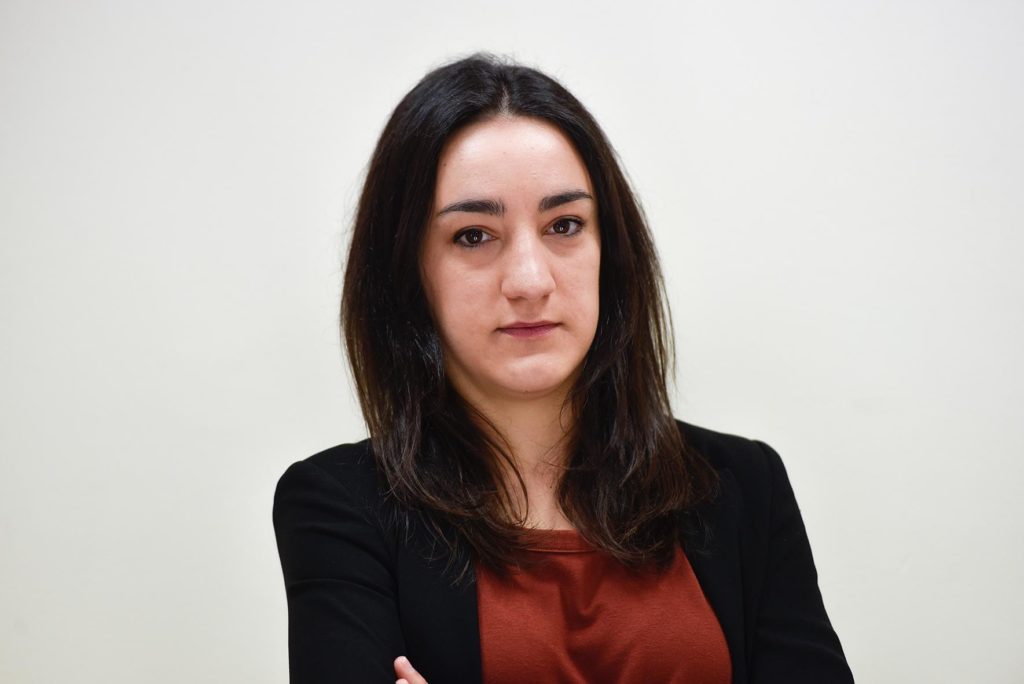05.04.2018 - 10:18
|
Actualització: 05.04.2018 - 10:37
Isabel Pires (Bloco Esquerda – Leftist Block) is one of the Portuguese representatives who have signed a manifesto demanding the release of Catalonia’s political prisoners. For the first time, representatives of the Socialist Party (currently in government) and right-wing parties, such as the PSD, have taken action. Written in the strongest terms, the document says: ‘We will not silence our indignation before the repressive fury disguised as legality, and we unite our voices with all those who, in Europe and in the world, demand the immediate release of Carles Puigdemont and all Catalan political prisoners’.
The manifesto (which can be read here in Portuguese) will be presented on Friday in the auditorium of the Assembly of the Republic, the national parliament. Just last week, the Portuguese parliament passed a resolution urging that the Catalan problem be resolved through political means. But it is this manifesto that underscores the issue of the prisoners and, as Pires explains, although the government has not yet taken a position, a growing number of voice in Portugal are demanding the release of the prisoners.
– Why did you sign the manifesto?
-Because we want to defend the freedom of those who we believe to be political prisoners.
– The event will be held in the auditorium of the Assembly of the Republic, the national parliament.
-We wanted to do it in the Assembly of the Republic because we believed that it holds symbolic power. Not only because there are representatives from different parties among the signatories, but also because it sends the message that the government should take a clearer position. It is very significant to be able to use the Assembly of the Republic’s auditorium. Ultimately, it is also a way of taking a political stand of sorts.
– Five political parties have signed the manifesto. How important is that? Have all parties signed?
-All have signed except one, the most right-wing party, which has not signed. We had never before gotten an MP from the PSD, and now they have signed, too. And the PS representative is important, because the PS, as governing party, is split on this matter. We hope that more people connected to this group will end up taking a stand.
– Who is the representative whose joining surprised you the most?
-The PSD, a right-wing party, is very important. It was not at all clear that he would end up signing, because it is a party that has a close ties with the Spanish PP. And from this point of view, it is extraordinary.
– And the President of the Republic, what position does he have?
-He has never said.
– And the president of the government?
-The president of the government is holding on to the position that all this is an internal Spanish affair and that, therefore, a statement is not necessary. Last week the government’s Secretary of State expressed this position. For now they remain non-committal.
– We spoke two months ago. What changes have there been since then, in Portugal, regarding the Catalan affair?
-Although there has been no avalanche of pronouncements about the matter, yes I believe that there is a very substantial difference from two months ago. At the moment, unlike what happened after the referendum, there are more and more people, especially people who write opinion articles, academics, teachers, who are committing themselves publicly. The question of the political prisoners has more and more visibility. And this, from the point of view of Portuguese politics, is very important. Portugal experienced a long dictatorship and knows what political prisoners are. For Portuguese society, this idea is very powerful. In Portugal we do not accept that people should be imprisoned for political reasons, and we condemn this.
– What pressure can Portugal apply on Spain?
-Portugal, like other EU nations, must criticize what happens in Spain and the decisions that have been made. And to say that the power of the judiciary is being used to stage a political attack. Therefore, I believe that European states must join together and make public statements rejecting the existence of political prisoners in Catalonia. The countries should address this question. It is not easy, but we will not stop pressuring until this position is reached.
– Northern Europe is deciding again on southern Europe.
-These things are typical of the EU: cyclically Germany and France, the countries that rule, are still predominant. And in the case of Germany it is especially important because it can stop, in a way, this process.
– Germany, Portugal and Spain. Three countries that lived the transition from a dictatorship to democracy in a very different way. What weight do you assign to the Spanish Transition in order to understand what is happening today?
-A parallel with the Portuguese Revolution can be drawn. In Portugal we managed to get rid of the power structures of the dictatorship. In Spain, on the other hand, the transition was negotiated, and the same thing did not happen. In Spain there are still remnants of this Francoist power. And that is the main difference between the two countries: the democratic paths that they followed are different. For example, now Spain is using these laws [sedition and rebellion], which we do not have in Portugal.



